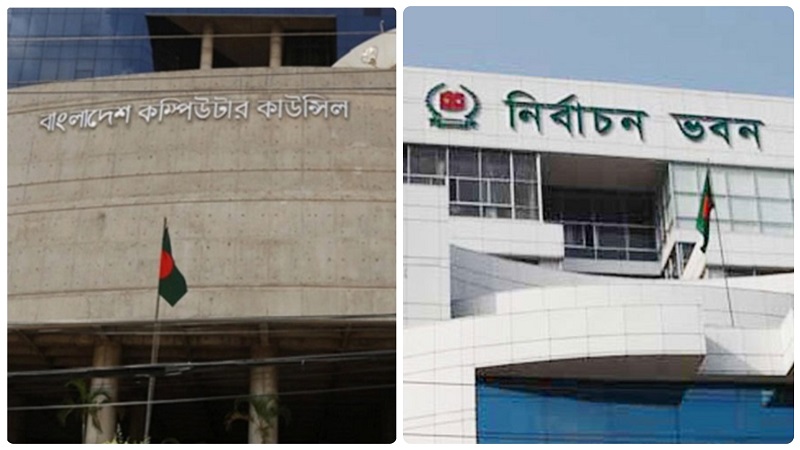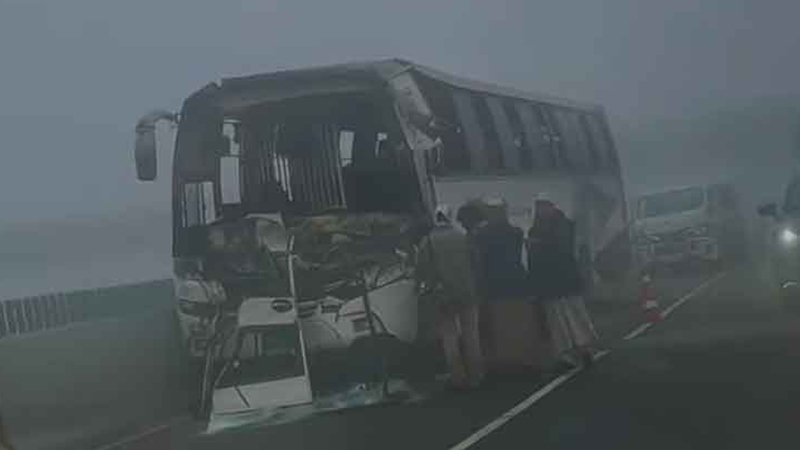The government-imposed ‘stricter restrictions’ on public movement and businesses began on Friday for 14 days across Bangladesh to contain Covid-19 amid widespread violations by people on roads and ferry terminals while they were returning to the capital after celebrating Eid-ul-Azha.
The restrictions between July 23 and August 5 would be stricter than earlier ones, state minister for public administration Farhad Hossain told journalists on Thursday.
Though the roads in Dhaka were empty, thousands of people reached Dhaka in the morning, when the restrictions were already in effect, by different modes of transports from distant districts.
People suffered immensely on the way to their destinations.
After arriving in the capital following the Eid-ul-Azha holidays, they were seen walking to their destinations or waiting for transports at the Sadarghat launch terminal and in Gulistan, Kanchpur, Aminbazar-Gabtoli, Jatrabari and Abdullahpur areas in Dhaka.
Ferries on Paturia-Daulatdia and Shimulia-Banglabazar channels on the River Padma carried passengers and passenger-carrying vehicles on the day defying the fresh restrictions.
Members of the Bangladesh Army, Board Guard Bangladesh and police set up check posts at different points on roads across the country.
The government on July 13 relaxed the restrictions for eight days from July 15 to July 22, allowing movement of people and pre-Eid business activities and facilitating the Eid economy amid concerns of the National Technical Advisory Committee, the Directorate General of Health Services and experts.
On the same day, a decision was taken to resume the 23-points restrictions from 6:00am on July 23 till August 5 midnight when all offices, both public and private and shops and markets including shopping malls, would remain closed and there a ban on public transports on roads, railways and waterways and domestic flights will remain in force.
The Cabinet Division in a circular issued on July 19 said that factories producing and processing foods and food items and industries engaged with transporting, preserving and processing hides of sacrificial animals and producing medicine, oxygen and necessary products for preventing Covid outbreak would remain out of the purview of the restrictions.
‘Like all offices, garment factories and export-oriented industries will be closed during these restrictions, this time the restrictions will be stricter,’ said state minister Farhad Hossain on Thursday.
He said that the offices and garment factories would remain closed this time and people would not have any need to go outside.
If the strict lockdown is implemented for the next 14 days, the rate of infection will certainly be reduced and the pressure of patients in hospitals will subside, making the management of patients easier, he added.
Bangladesh witnessed 166 more Covid deaths and 6,364 cases in the 24-hour cycle ending on Friday morning taking the number of deaths to 18,851 and infections to 11,46,564.
The Dhaka Metropolitan Police on Friday said that they arrested 403 people at places in the capital for violating the restrictions on public movement imposed by the government for two weeks from Friday to contain the surge of Covid deaths and infections in Bangladesh.
Several mobile courts aided by the metropolitan police authorities fined 203 people, realising Tk 1,27,270 while the DMP’s traffic department fined Tk 10,60,500 to 441 other vehicles for violating the restriction.
Hundreds of people on Friday morning came at the Sadarghat launch terminal after getting down from launches that arrived from southern districts which stopped carrying passengers from 6:00am on the day due to the fresh restrictions.
For the same reason, people had to wait for hours to get transports to reach their destinations in the capital.













